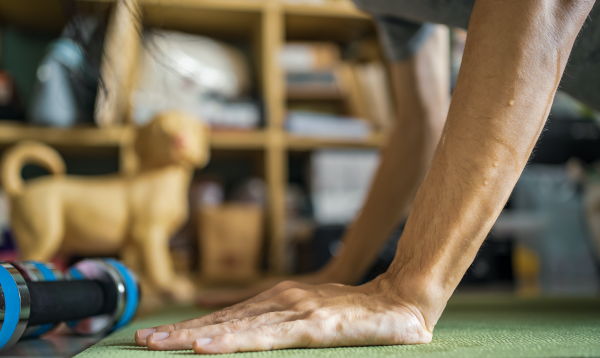Bupa says a new survey has revealed that the COVID-19 pandemic has prompted more younger Australians to prioritise their health and wellbeing.
The 'Bupa Health and Wellbeing Pulse' Report found that health was top of mind for younger Australians.
Three quarters (75 per cent) aged 40 and under said they felt the need to start prioritising health over other aspects of their lives. Family households and women were also prioritising their health, wellbeing and self-care, but fewer men were doing so.
The survey of 1,000 Australians in November 2021, which was conducted by Quantum Market Research, found clear differences in attitudes and results when it came to how the pandemic impacted the different age and gender groups looking after themselves.
The under-40s have needed more self-care in the past year than over 40s (68 per cent compared to 48 per cent). They have undertaken more self-care than ever before compared to those over 40 and are more likely to have participated in at least one health-related activity in the past 12 months.
The survey also found many Australians may be playing 'catch up' with their health with 84 per cent of respondents planning to book at least one health-related appointment before the end of the year.
Bupa Health Insurance managing director Emily Amos said the survey pointed to a more health-focused population, particularly among younger Australians.
“With a one-in-a-hundred-year pandemic upon us, COVID-19 has shone a light like never before on the health of our communities, families and our own health,” she said.
“The upside of these results is that it shows younger people, who are often portrayed as thinking they’re bulletproof, have a genuine desire to be actively involved in their health care. In addition to more traditional health services, younger Australians are significantly more likely to use wellness services such as massage, natural medicine, yoga and health spas.
“Even during the pandemic, both during and after lockdowns, when they may not have been able to access all their usual health and wellbeing services, we’ve seen many younger people make conscious decisions to invest in their wellbeing such as drinking less alcohol, meditating and participating in online health classes,” added Amos.
The survey also found that Australians aged 40 and under were most likely to change their behaviour to improve their health, along with those with private health insurance. Under 40s were the highest demographic group to reduce alcohol consumption (35 per cent) and participate in online exercise classes (19 per cent).
The top health-related activities across all age groups in the past year were eating more healthy foods (55 per cent), taking vitamins or supplements (45 per cent) and getting more sleep (32 per cent) and starting an exercise program (30 per cent).
Around 60 per cent of respondents postponed at least one health appointment. Dentistry was the most delayed care (37 per cent), followed by GPs (27 per cent), opticians (16 per cent ) and counselling or psychology (15 per cent).
Almost 85 per cent of people said they are planning to book an appointment before the end of the year, with GPs topping the list (70 per cent), followed by dentists (43 per cent), opticians (33 per cent), counselling or psychology (19 per cent), physio (18 per cent) and cancer screening (17 per cent).
“It’s encouraging to see such a high percentage of people intending to book medical and ancillary appointments before the end of the year,” said Ms Amos said.
“But the number of people planning to book cancer screening appointments remains low. More work needs to be done to ensure eligible and at-risk people are accessing cancer screening appointments without delay. We urge people to get this done as early detection plays such a key role in preventing a number of cancers.”
